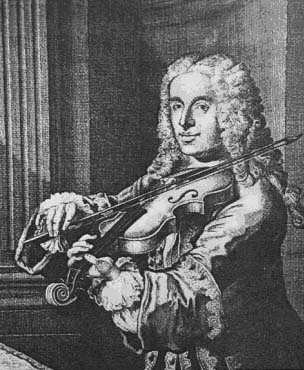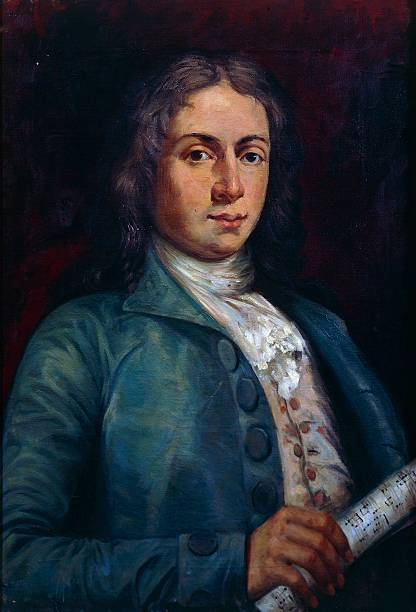|
1711 In Music
The year 1711 in music involved some significant events. Events *February 24 – The London premiere of ''Rinaldo'' by George Frideric Handel, the first Italian opera written for the London stage, at the Queen's Theatre, Haymarket. This is the first of at least 25 operas by Handel that will appear by 1739. John Walsh becomes Handel's regular printer beginning with the publication of ''Rinaldo''. *April 3 – Possible premiere of Johann Sebastian Bach's ''St Mark Passion pastiche'' at the chapel of Wilhelmsburg Castle (two movements by Bach). *Invention of the tuning fork by John Shore. Classical music *William Babell – Toccata No.6 *Giovanni Maria Bononcini – ''Idol mio, bel tesoro'' *Louis-Antoine Dornel – 8 Violin Sonatas and 4 Flute Suites, Op. 2 *Sebastián Durón – ''Veneno es de Amor la envidia'' *Christoph Graupner **''Furcht und Zagen'', GWV 1102/11b **''Angenehmes Wasserbad'', GWV 1104/11c **''Reiner Geist lass doch mein Herz'', GWV 1138/11 **''Ach Go ... [...More Info...] [...Related Items...] OR: [Wikipedia] [Google] [Baidu] |
February 24
Events Pre-1600 * 484 – King Huneric of the Vandals replaces Nicene bishops with Arian ones, and banishes some to Corsica. * 1303 – The English are defeated at the Battle of Roslin, in the First War of Scottish Independence. * 1386 – King Charles III of Naples and Hungary is assassinated at Buda. * 1525 – A Spanish-Austrian army defeats a French army at the Battle of Pavia. * 1527 – Coronation of Ferdinand I as the king of Bohemia in Prague. * 1538 – Treaty of Nagyvárad between Holy Roman Emperor Ferdinand I and King John Zápolya of Hungary and Croatia. * 1582 – With the papal bull ''Inter gravissimas'', Pope Gregory XIII announces the Gregorian calendar. * 1597 – The last battle of the Cudgel War was fought on the Santavuori Hill in Ilmajoki, Ostrobothnia. 1601–1900 * 1607 – ''L'Orfeo'' by Claudio Monteverdi, one of the first works recognized as an opera, receives its première performance. *1711 – ''Rinald ... [...More Info...] [...Related Items...] OR: [Wikipedia] [Google] [Baidu] |
Louis-Antoine Dornel
Louis-Antoine Dornel (30 March 1680 in Presles, Val-d'Oise near (Beaumont-sur-Oise) – 22 July 1757) was a French composer, harpsichordist, organist and violinist. Biography Dornel was probably taught by the organist Nicolas Lebègue. He was appointed organist at the church of Sainte-Marie-Madeleine-en-la-Cité in 1706, where he took over from François d'Agincourt. He was runner-up in the competition for the post to Jean-Philippe Rameau, who eventually refused the terms set by the church authorities. He occupied several organist posts in Paris over a period from 1714 to 1748. In 1719 he was appointed to the abbey of Sainte-Geneviève, following the death of André Raison. From 1725 to 1742, Dornel was appointed successor to du Boussetto as the music master of the Académie Française. He was required to compose a large-scale motet for choir and orchestra to be performed by the Académie each year on the feast of Saint Louis (August 25), but none survive. Dornel's works for harp ... [...More Info...] [...Related Items...] OR: [Wikipedia] [Google] [Baidu] |
Francesco Maria Veracini
Francesco Maria Veracini (1 February 1690 – 31 October 1768) was an Italian composer and violinist, perhaps best known for his sets of violin sonatas. As a composer, according to Manfred Bukofzer, "His individual, if not subjective, style has no precedent in baroque music and clearly heralds the end of the entire era", while Luigi Torchi maintained that "he rescued the imperiled music of the eighteenth century", His contemporary, Charles Burney, held that "he had certainly a great share of whim and caprice, but he built his freaks on a good foundation, being an excellent contrapuntist". The asteroid 10875 Veracini was named after him. Life Francesco Maria Veracini was born at about 8:00 a.m. on 1 February 1690 in the family house on the via Palazzuolo, parish of San Salvatore, Ognissanti, Florence. The second and only surviving son of Agostino Veracini, a pharmacist and undertaker (and ironically one of the few Veracinis who was not a violinist, even as an amateur) he w ... [...More Info...] [...Related Items...] OR: [Wikipedia] [Google] [Baidu] |
Joseph Valette De Montigny
Joseph is a common male given name, derived from the Hebrew Yosef (יוֹסֵף). "Joseph" is used, along with "Josef", mostly in English, French and partially German languages. This spelling is also found as a variant in the languages of the modern-day Nordic countries. In Portuguese and Spanish, the name is "José". In Arabic, including in the Quran, the name is spelled ''Yūsuf''. In Persian, the name is "Yousef". The name has enjoyed significant popularity in its many forms in numerous countries, and ''Joseph'' was one of the two names, along with ''Robert'', to have remained in the top 10 boys' names list in the US from 1925 to 1972. It is especially common in contemporary Israel, as either "Yossi" or "Yossef", and in Italy, where the name "Giuseppe" was the most common male name in the 20th century. In the first century CE, Joseph was the second most popular male name for Palestine Jews. In the Book of Genesis Joseph is Jacob's eleventh son and Rachel's first son, and kn ... [...More Info...] [...Related Items...] OR: [Wikipedia] [Google] [Baidu] |
Jean-Baptiste Stuck
Jean-Baptiste Stuck (also known by the single moniker "Baptistin," "Batistin" or "Battistin") (6 May 16808 December 1755) was an Italian-French composer and cellist of the Baroque era. Little is known of Stuck's early years. He was born at Livorno on the coast of Tuscany, came from a merchant family, and was the son of Giovanni-Giacomo Stuck and Barbera Hellerbeck. From 1702 he was in the service of Countess Lemos in Naples. Stuck wrote arias for the performance of the opera ''L'innocente inganno'' of Tomaso Albinoni, which was performed under the new title ''Rodrigo in Algieri'' on 10 December 1702 in Naples at the Teatro San Bartolimeo. Shortly thereafter Stuck moved to Paris. In 1705, he published the collection ''Für das Jahr 1701'' through the Ballard publishing house. In Paris, he was a member of the Chapelle royale and a cellist in the service of Philippe II, Duke of Orléans. In 1722, he led the cello in the opera orchestra, displacing the bass viol. In 1733 he received Fr ... [...More Info...] [...Related Items...] OR: [Wikipedia] [Google] [Baidu] |
Alessandro Scarlatti
Pietro Alessandro Gaspare Scarlatti (2 May 1660 – 22 October 1725) was an Italian Baroque composer, known especially for his operas and chamber cantatas. He is considered the most important representative of the Neapolitan school of opera. Nicknamed by his contemporaries "the Italian Orpheus", he divided his career between Naples and Rome, where he received his training; a significant part of his works was composed for the papal city. He is often considered the founder of the Neapolitan school, although he has only been its most illustrious representative: his contribution, his originality and his influence were essential, as well as lasting, both in Italy and in Europe. Particularly known for his operas, he brought the Italian dramatic tradition to its maximum development, begun by Monteverdi at the beginning of 17th century and continued by Cesti, Cavalli, Carissimi, Legrenzi and Stradella, designing the final form of the ''Da capo aria'', imitated throughout Europe. H ... [...More Info...] [...Related Items...] OR: [Wikipedia] [Google] [Baidu] |
Michele Mascitti
Michele Mascitti (1664 in Villa Santa Maria (from Chieti); 24 April 1760 in Paris) was an Italian violinist and Baroque composer. Life Mascitti was educated by a relative, Pietro Marchitelli (1643-1729), a violinist in the royal court orchestra in Naples, and at the "Teatro San Bartolomeo", possibly by Corelli. Mascitti found a temporary position in the royal orchestra, but soon left. He traveled through Italy, and later throughout Europe, spending time in Germany and the Netherlands. He was under the protection of Cardinal Ottoboni and the reigning Duke of Bavaria. In 1704, he settled in Paris and took the Frenchified given name of Michel. He became a French citizen in 1739. Philippe d'Orléans was a patron, allowing Mascitti early appearances at the court of Versailles. Mascitti published all nine of his sonata collections in Paris. The four concertos from Op. 7 follow the ''concerto grosso'' style of Corelli. During his lifetime, Mascitti enjoyed similar fame to Albinoni ... [...More Info...] [...Related Items...] OR: [Wikipedia] [Google] [Baidu] |
Marin Marais
Marin Marais (; 31 May 1656, in Paris – 15 August 1728, in Paris) was a French composer and viol player. He studied composition with Jean-Baptiste Lully, often conducting his operas, and with master of the bass viol Monsieur de Sainte-Colombe for six months. In 1676 he was hired as a musician to the royal court of Versailles and was moderately successful there, being appointed in 1679 as ''ordinaire de la chambre du roy pour la viole,'' a title he kept until 1725. He was the father of the composer Roland Marais (c. 1685 – c. 1750). Career Marin Marais was a master of the viol, and the leading French composer of music for the instrument. He wrote five books of '' Pièces de viole'' (1686–1725) for the instrument, generally suites with basso continuo. These were quite popular in the court, and for these he was remembered in later years as he who "founded and firmly established the empire of the viol" ( Hubert Le Blanc, 1740). His other works include a book of ''Pièces en ... [...More Info...] [...Related Items...] OR: [Wikipedia] [Google] [Baidu] |
Francesco Manfredini
Francesco Onofrio Manfredini (22 June 1684 – 6 October 1762) was an Italian Baroque composer, violinist, and church musician. He was born at Pistoia to a trombonist. He studied violin with Giuseppe Torelli in Bologna, then a part of the Papal States, a leading figure in the development of the ''concerto grosso''. He also took instruction in composition from Giacomo Antonio Perti, ''maestro di cappella'' of the Basilica of San Petronio from 1696 when the orchestra was temporarily disbanded. Much of his music is presumed to have been destroyed after his death; only 43 published works and a handful of manuscripts are known. To quote his Naxos biography, "His groups of Concerti Grossi and Sinfonias show a highly accomplished composer, well versed in the mainstream Italian school of composition." Career Although he composed oratorios, only his secular works remain in the repertoire. A contemporary of Johann Sebastian Bach and Antonio Vivaldi, his extant work shows the influence ... [...More Info...] [...Related Items...] OR: [Wikipedia] [Google] [Baidu] |
Leo Leonardo (composer)
''VG Cats'' (short for ''Video Game Cats''"All About the Site" ''VG Cats''"Internet provides new way to get daily dose of funnies" ''The Rocket (Slippery Rock), The Rocket' page 2 ) is a webcomic written and drawn by Canadian cartoonist Scott Ramsoomair. Published on its own website, it featured the adventures of a pair of Anthropomorphism, anthropomorphic cats, who often played the roles of Player character, characters in popular video games that are parodied in the strip. Strips were usually presented in a large format and in full color. The author generally set ... [...More Info...] [...Related Items...] OR: [Wikipedia] [Google] [Baidu] |



